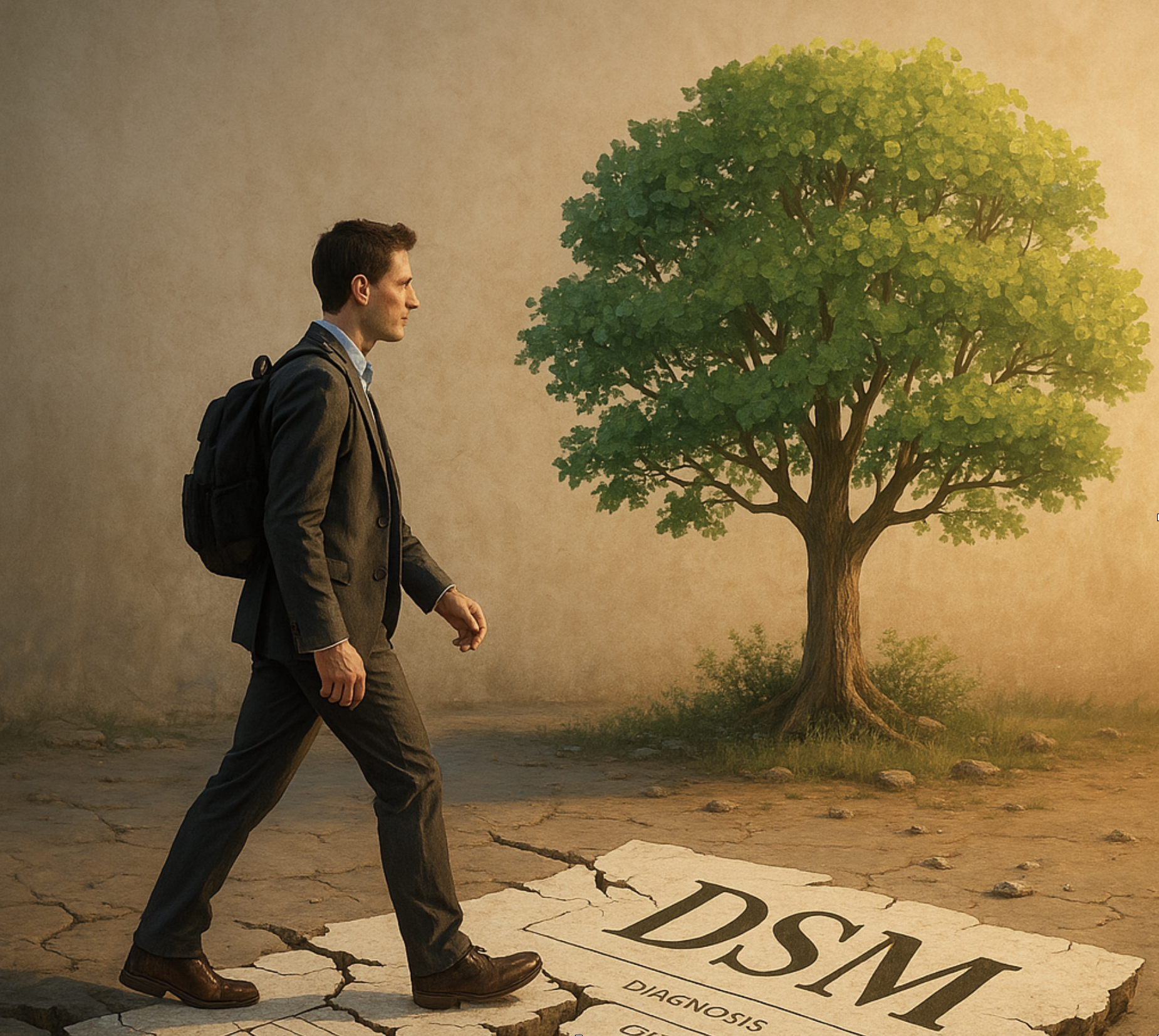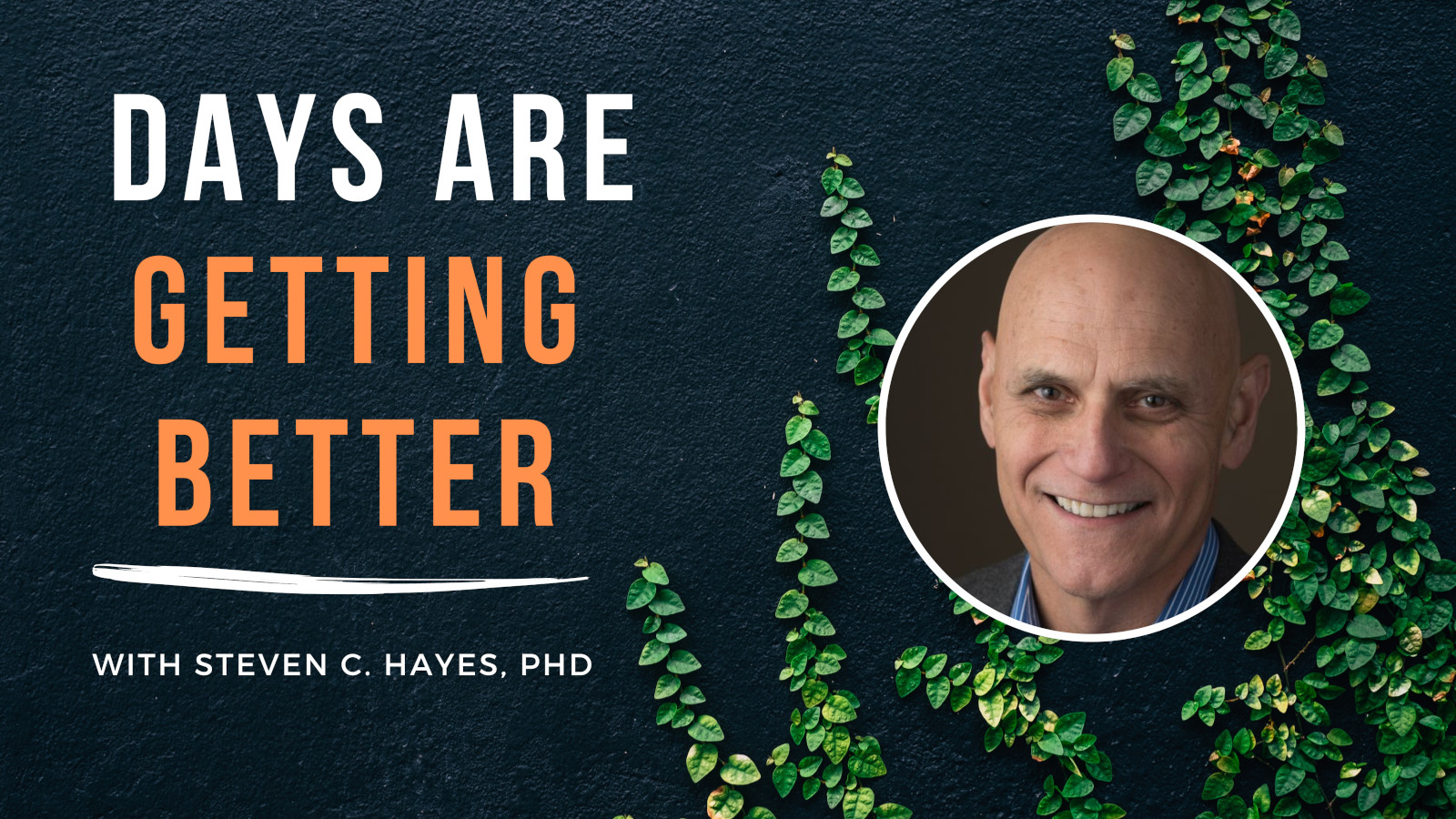The world of mental health is undergoing a quiet revolution—one that is shaking the foundations of how we understand psychological suffering and what it means to live a full and meaningful life. The era of syndromal diagnosis, based on latent disease categories, is slowly fading, and something far more personal, precise, and human is emerging in its place.
For over a century, mental health care has leaned heavily on a medical model. We carved up human suffering into syndromes and imagined them as latent disease entities—”depression,” “anxiety disorders,” “schizophrenia”—that supposedly existed beneath the surface and gave rise to observable symptoms. We called this “diagnosis,” but what we really meant was classification. The problem? These categories don’t map well onto the actual complexity of human beings.
The research is clear: the traditional diagnostic system has failed to deliver on its promise. It hasn’t helped us predict treatment outcomes for particular people, match interventions to them, or explain the underlying causes of distress. Even the developers of the DSM acknowledge these shortcomings. We need a new approach—one that focuses less on naming problems and more on changing lives.
That new approach is already here, and it’s rooted in the study of processes of change.
From Syndromes to Processes
Instead of asking, “What disorder does this person have?” we’re learning to ask, “What psychological processes are at work here—and how can we help shift them in a more adaptive direction?”
That shift is monumental. It opens the door to an entirely new scientific paradigm—one that recognizes the fluid, dynamic nature of human experience. At its heart is the idea that what matters most in mental health is not what category a person fits into, but how they are functioning moment by moment, over time.
This is where process-based therapies like Acceptance and Commitment Therapy (ACT) have been leading the way. Rather than treating “disorders,” ACT targets the psychological flexibility processes that support well-being across a wide range of challenges. And the science is unambiguous: these processes are just as relevant to depression or anxiety as they are to chronic pain, substance use, parenting, performance, or resilience. In fact, fewer than a quarter of the first 1,000 ACT studies1 focused on traditional DSM syndromes; the rest reached into broader domains of behavioral health, performance, and social wellness.
This shift is not merely technical—it is philosophical. It places the individual back at the center of the mental health equation. It demands that we understand each particular person—or couple, or family—as a unique and evolving pattern of responses within their own life context.
In a word, it is idiographic.
Embracing Idionomics
To truly understand and help people, we need to embrace the non-ergodic nature of human behavior. That’s a fancy way of saying that we cannot assume that differences between people tell us how particular people change over time.
Even in physics such an assumption—that between-unit variability (say with water molecules) models within-unit change—is often false. In psychology? Unless you’re dealing with a collection of frozen clones, replace “often” with “always.”
That’s why my colleagues and I have been advocating for a new approach we call idionomic analysis—a science of general laws that emerge from the particular.2 Rather than averaging across people and pretending we’re learning about individuals, we can now examine within-person variability and the network of dynamic processes that make each person’s path to wellness unique. General laws are still sought—but only if they help us understand particular people better.
When we stop pretending that human lives can be reduced to group averages and static categories, we gain access to the real engines of change.
The Expansion of Mental Health into Well-Being
As we zero in on processes of change, something else becomes clear: the same psychological processes that reduce suffering also promote thriving.
That’s why we’re seeing a dramatic expansion of the mental health field into areas like diet, sleep, exercise, relationships, and even social justice. We’re no longer just trying to help people survive—we’re helping them flourish.
In the ACT world, we’ve tracked this expansion for years. Interventions that increase psychological flexibility don’t just reduce symptoms; they also enhance meaning, vitality, and connection. They help people run a business, or a marathon. They help people reduce needless anxiety, or prejudice toward others. This isn’t an accident. It’s a reflection of what human beings need to live well.
And it’s not limited to licensed psychotherapists. Coaches, teachers, community leaders—even digital apps—can help support the processes that uplift lives.
A System Under Pressure
Of course, not everyone is thrilled with this transformation. Our current system of care—and its connection to reimbursement, licensure, and institutional authority—is deeply tied to the disease model. Insurance companies reimburse based on diagnostic codes. Training programs focus on treating syndromes. Trillion-dollar industries are built on the premise that mental disorders are latent diseases, and need to be treated that way.
Moving toward process-based, idiographic approaches challenges all of that. It demands that we rethink how care is delivered, who delivers it, and what counts as evidence.
But the need is urgent. Social, economic, and technological change is now moving at an exponential pace. Linear systems of care simply can’t keep up.
We need mental health systems that are flexible, scalable, and deeply human. That means using technology wisely—not to replace human connection, but to enhance it. It means training a wider range of helpers and empowering individuals with tools to navigate their own growth. It means breaking down the artificial barriers between mental health, physical health, and social well-being.
The Coming Transformation of Work
This revolution in mental health is not happening in isolation. It’s part of a broader transformation in how we live and work.
As artificial intelligence and automation reshape the economy, traditional jobs are being redefined—or disappearing altogether. We are rapidly approaching a world where “work” may no longer be the central organizing principle of adult life. In that world, meaning, purpose, connection, and contribution will matter more than ever.
If we don’t prepare for that future by building psychological resilience, social cohesion, and personal empowerment now, we risk being swept away by it.
But if we do prepare—if we embrace a process-based, person-centered approach to mental health—we can help build a world where flourishing is not the privilege of the few but the birthright of all.
The Way Forward
The world of mental health is changing because it must. The old model is broken. The new model—rooted in processes of change, personalized science, and human thriving—is already taking shape.
This is not just an academic or professional shift. It’s a moral one. We are being called to do better by those we serve—to move beyond categories and codes, and to meet people where they are, as they are.
It will not be easy. Systems resist change. But the momentum is building.
And the future—if we choose to shape it—looks brighter than ever.
References
- Hayes, S. C. & King, G. (2024). Acceptance and Commitment Therapy: What the history of ACT and the first 1,000 randomized controlled trials reveal. Journal of Contextual Behavioral Science, 33, 100809. Doi: 10.1016/j.jcbs.2024.100809
- Sahdra, B. K., Ciarrochi, J., Klimczak, K., Krafft, J., Hayes, S. C., & Levin, M. (2024). Testing the applicability of idionomic statistics in longitudinal studies: The example of ‘doing what matters.’ Journal of Contextual Behavioral Science, 32, 100728. Doi: 10.1016/j.jcbs.2024.100728







